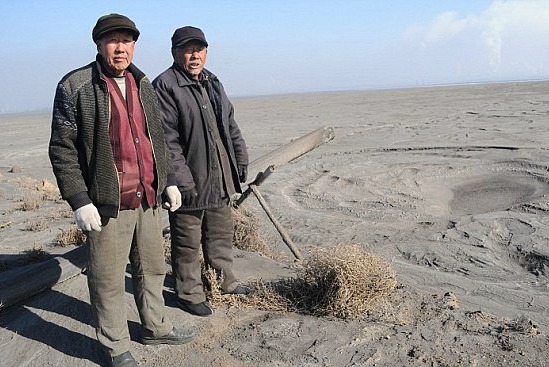As global population and technology usage increases, it is becoming apparent that the world is unprepared to deal with the situation of depleting supply of critical elements. It is clear that Earth's resources cannot sustain our consumption rates without major alterations to the consumption and usage of these elements.
Prominent new technologies, many of which are rooted in the drive to find "green" energy and technologies, rely on rare earth elements and rare metals. These elements are utilized in clean energy, military, and consumer technologies. Cell phones and computers both contain small quantities of REEs, all of which are becoming ever more prevalent in the modern world. The platinum group elements are vital to catalytic converters and autocatalysts, and the demand for these elements will rise even higher as auto emission standards rise. The supply of fission elements is also at risk – at the current rate and manner of usage, the supply of uranium may run out within the next 60-80 years (World Nuclear Association, 2012), if nuclear energy production increases as projected.
The critical element phosphorus is a supply crisis unto itself. Phosphorus is essential to sustaining life. The world population is projected to be over 9 billion by 2050 and current phosphorus supplies will not sustain such numbers. If phosphorus supplies become a limiting agent on population growth, conflicts will arise between and within countries over access to phosphorus and thus the ability to survive.
Deposits of many of these strategic elements are naturally concentrated in a few countries, leading to near-monopolies of markets on certain minerals. These geologic disparities lead to rare earth and rare metal markets being dominated by isolated sectors, such as China for rare earth element production and South Africa for platinum production.
The economics and supply of critical elements are not the only problems faced; the gap between supply and demand is actively widening, as its dependence on specific locations of deposits has led to pricing and security problems. Additionally, these emerging and precariously-established industries also face issues of human rights violations. Mining conditions often do not meet basic regulations. Environmental problems, such as unregulated mining, harmful refining methods, and careless disposal of toxic and radioactive waste that leaches back into the environment, create a problem that can neither be sustained nor condoned.
Many mineable ores are located in regions that lack the infrastructure and regulation to ensure safe mining conditions for the workers and the protection for the surrounding ecosystem. In places (such as the Democratic Republic of the Congo) where mining is often run by violent militias, a multitude of human rights violations are associated with rare mineral mines. Workers are forced to work in unsafe and unhealthy conditions.
Unregulated mining and refining also lead to environmental hazards along every step of the supply chain. Improper treatment of uranium and thorium can le ad to radiation pollution. The refining process concentrates wastes and adds harsh acids and bases which contaminate the site. Improper disposal of tailings also contaminates the environment with toxic and sometimes radioactive materials. Though solid tailings present environmental issues, the primary problem comes from wet tailings. Wet tailings are left to sit in dams which are susceptible to rupture; if that happens, the tailings are released uncontrolled into the environment.
ad to radiation pollution. The refining process concentrates wastes and adds harsh acids and bases which contaminate the site. Improper disposal of tailings also contaminates the environment with toxic and sometimes radioactive materials. Though solid tailings present environmental issues, the primary problem comes from wet tailings. Wet tailings are left to sit in dams which are susceptible to rupture; if that happens, the tailings are released uncontrolled into the environment.
The problems surrounding the use of strategic elements go largely unnoticed by the public. The REEs and rare metals contained within many products are often not clearly divulged, and due to the competitive nature of the market, trade secrets associated with specific developments in materials, refining techniques, and products are closely-guarded secrets. It is difficult for the everyday consumer to gather the necessary information to make informed purchasing choices.
The problems of usage and depletion of critical elements is going to shape the future. If major changes are not made to the ways in which we mine, consume, utilize, and repurpose these elements, by the end of this century we will face disastrous shortages in food, consumer goods, and critical technologies, resulting in major world conflicts based on resource competition.
World Nuclear Association. (2012, August). Supply of Uranium. Retrieved from http://www.world-nuclear.org/info/inf75.html

